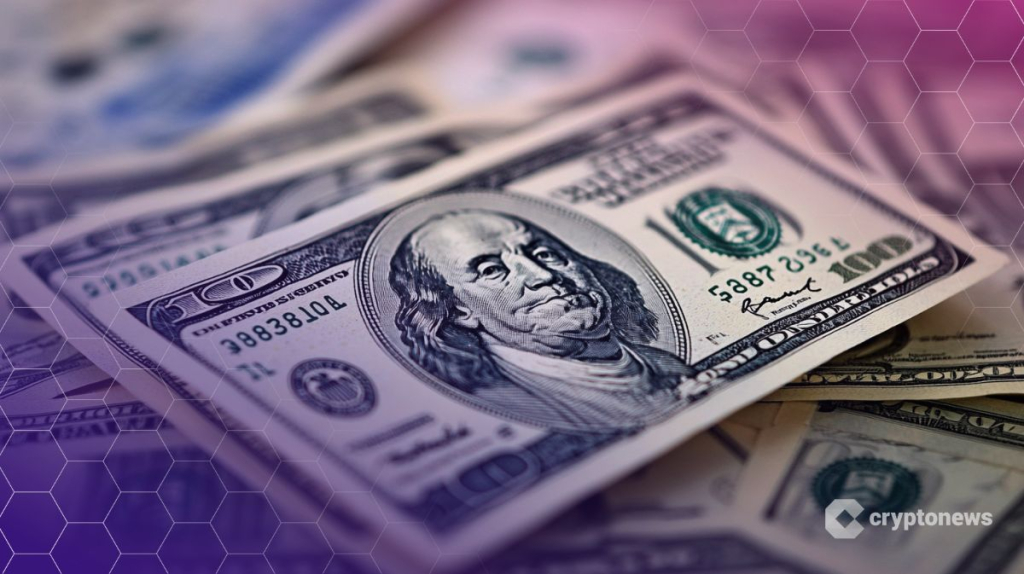Key Takeaways:
- Coinbase CEO warns Bitcoin could replace USD as reserve currency if US debt remains unchecked.
- A Trump-backed spending bill faces criticism for potentially worsening the $37 trillion national debt.
- Bitcoin’s fixed supply and rising institutional demand are fueling its appeal as a hedge against fiscal instability.
Brian Armstrong, the CEO of Coinbase, has expressed significant concerns that Bitcoin may one day supplant the U.S. dollar as the global reserve currency if the nation’s growing debt issue goes unaddressed. In a post on X, Armstrong emphasized the necessity for fiscal responsibility, stating, “I love Bitcoin, but a strong America is also super important for the world. We need to get our finances under control.”
As the national debt surpasses $37 trillion, apprehensions about the sustainability of U.S. finances are mounting. Armstrong warned that if voters do not hold Congress accountable for reducing the deficit and begin to pay down the debt, Bitcoin could emerge as the alternative reserve currency.
Trump-Backed Spending Bill Advances as US Debt Worries Mount
Armstrong’s remarks coincided with House Republicans pushing forward a Trump-endorsed spending bill that extends tax cuts while increasing military funding and curtailing safety-net programs such as Medicaid, food assistance, and initiatives for clean energy. Critics contend that this legislation will exacerbate the nation’s debt problems.
A coalition of six Nobel laureates, including notable economists Paul Krugman and Joseph Stiglitz, released a letter in June warning that the proposed bill could add at least $3 trillion to the existing debt if its measures become permanent.
The escalating national debt is refocusing attention on Bitcoin, a digital currency created during the aftermath of the 2008 financial crisis, designed to be a finite and inflation-resistant asset. Analysts are noting that the asset’s growing institutional demand positions Bitcoin as a viable hedge against economic uncertainty.
Notably, Tesla CEO Elon Musk has also voiced his discontent with the spending bill, labeling it a “massive, outrageous, pork-filled Congressional spending bill” and a “disgusting abomination.” Musk criticized the potential for the bill to inflate the budget deficit to an unsustainable $2.5 trillion, placing further financial strain on American citizens.
US Eyes Bitcoin Reserve to Tackle Soaring Debt
With the national debt climbing above $37 trillion, lawmakers are exploring strategic measures to stabilize the U.S. economy, with Bitcoin potentially taking a significant role. Last year, Senator Cynthia Lummis proposed the creation of a Bitcoin Strategic Reserve, advocating for the cryptocurrency as a buffer against inflation and economic instability.
The proposal, which gained traction following Donald Trump’s 2024 election victory, would see the U.S. Treasury gradually acquire 1 million Bitcoins—approximately 5% of the total supply. This reserve would be structured similarly to the nation’s existing gold reserves, with Bitcoin stored across a decentralized network of secure vaults and funded by current Treasury assets.
Lummis highlighted that this Bitcoin reserve could help mitigate the dollar’s declining value and shield American families from the long-term consequences of inflation. “We must take bold steps to secure our economic future,” she stated, asserting that Bitcoin represents a modern store of value.
Trump has previously signaled his ambition to position the U.S. as the “crypto capital of the planet,” with Bitcoin emerging as a vital component of the nation’s future economic agenda.


























